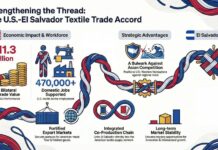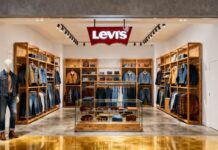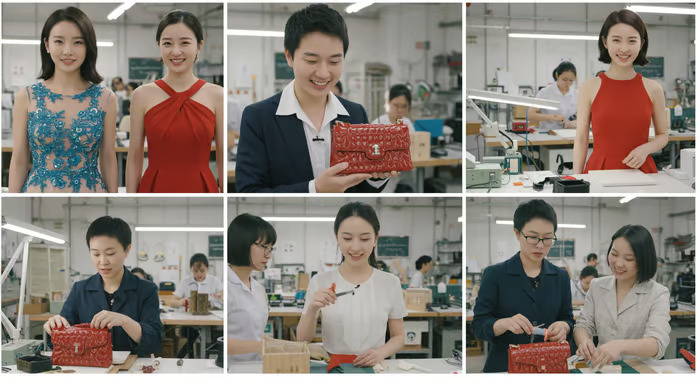In a remarkable turn of events linked to the ongoing trade tensions between the United States and China, TikTok is reshaping consumer perceptions and purchasing behaviors regarding luxury products. Chinese manufacturers are harnessing the power of social media not only to sell directly to American consumers but also to reveal what they call the “hidden truths” behind global retail pricing. This phenomenon is being dubbed “Luxury Market Disruption by TikTok.”
The days of viral dances and beauty tutorials are fading away. In their place, factory workers and influencers are showcasing Lululemon-style leggings for just $6 and “Birkin-inspired” bags priced below $100. Their message is straightforward yet provocative—many of these items, they assert, are produced in the same facilities that create high-end Western brands, but are sold without the hefty markup. This approach is central to the ongoing Luxury Market Disruption by TikTok trend.
China’s New Strategy: A Tactical Response
From the viewpoint of Beijing, this initiative goes beyond simple e-commerce; it represents a strategic maneuver to shape the narrative surrounding trade. “The American consumer is being overcharged,” claimed an anonymous executive from a Guangdong apparel exporter featured in a viral TikTok. “We’re offering the same quality for a fraction of the cost, and we’re not hiding it anymore. This is transparency.” The impact of this campaign is significant in the context of Luxury Market Disruption by TikTok.
While the Chinese government has not officially endorsed this trend, the timing is significant. With a tariff exemption on low-cost goods expiring in May 2025, Chinese manufacturers are eager to establish direct connections with American consumers, bypassing traditional supply chains and tariff obstacles.
Some Chinese content creators have taken their messaging a step further, using their platforms to critique U.S. trade policy. One viral post, which amassed over 5 million views, posed the question, “Why pay $150 for a label when you can buy the same from the factory for $10? Americans need to question who profits from this system.”
Luxury Brands Respond
Global luxury brands are not sitting idle. Lululemon has publicly stated that only around 3% of its final products are produced in China, and it maintains a transparent list of authorized suppliers on its website. Similarly, Louis Vuitton asserts that none of its items are manufactured in Chinese factories, despite social media claims to the contrary.
“These TikToks are misleading and contribute to a growing counterfeit culture,” remarked a spokesperson for a European luxury conglomerate, speaking on the condition of anonymity. “It damages brand trust and confuses consumers about authenticity, quality, and craftsmanship.”
Industry expert Conrad Quilty-Harper, author of Dark Luxury, expresses skepticism about the accuracy of these claims. “Some of these goods may originate from similar supply chains, but they’re not identical products,” he pointed out. “There’s an intentional gray area being exploited here.”
Authenticity Concerns and Market Disruption
This situation raises important questions about China’s longstanding counterfeit ecosystem. In 2023, U.S. Customs and Border Protection seized nearly $2 billion worth of counterfeit goods, with China as the leading source.
Legal experts caution that American consumers may unknowingly acquire counterfeit items, with enforcement agencies ramping up surveillance on such transactions. Nevertheless, the allure of gray-market goods remains robust, particularly amid inflation and economic uncertainty.
Implications for the European Market
This disruption could extend beyond American shores, potentially unsettling the European luxury market, where traditional brands have relied on exclusivity and prestige. With videos revealing how handbags, shoes, and clothing can be produced at a fraction of retail prices, the conventional value proposition of luxury is being scrutinized.
“European brands may need to rethink their pricing strategies and storytelling,” suggested a luxury marketing strategist based in Paris. “If Chinese manufacturers maintain this level of transparency, it could redefine consumer perceptions of value.”
A Broader Context: Supply Chains and Global Influence
Beneath the surface of these viral videos lies a strategic maneuver by China. Alongside these factory showcases, China has recently restricted exports of seven rare earth metals crucial for defense and technology sectors—a move interpreted as a demonstration of its dominance in vital global supply chains.
This dual approach—utilizing both soft power through social media and hard power via resource control—illustrates China’s evolving strategy in the trade conflict.
As the tariff tensions between the U.S. and China escalate, TikTok has emerged as an unexpected yet powerful arena for this battle. The Luxury Market Disruption by TikTok trend is forcing Western brands to strive to safeguard their reputations and intellectual property, while Chinese manufacturers rewrite the engagement rules—one video at a time.

































